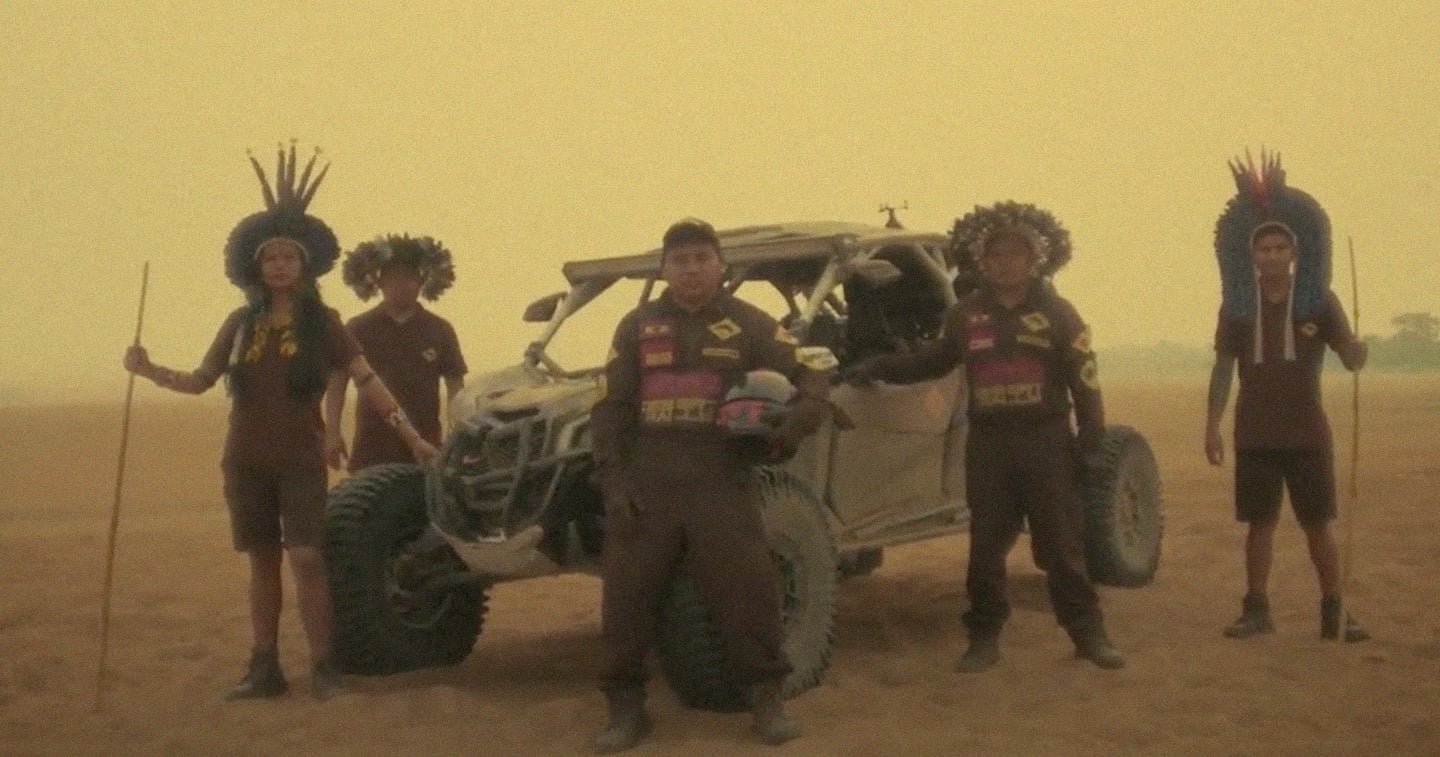SAO PAULO, BRAZIL — As the Amazon Rainforest faces unprecedented threats from deforestation leading to desertification, communications equipment company Vivo joined forces with indigenous communities and environmental organizations to launch the groundbreaking “Amazon Desert Rally.”
Vivo crafted a fake desert race that juxtaposes wild fiction with an even wilder reality of vast environmental destruction to draw attention to the harsh truth of the Amazon’s plight. The effort, conceived with Vivo’s creative agency, Africa Creative, aims to shed light on the alarming rate of river drying in the Amazon basin and garner public support for urgent conservation efforts.
The Amazon basin’s rivers have lost a staggering 120 trillion liters of water in 2023 alone, with illegal logging emerging as a leading cause of environmental degradation. A recent study published in Nature revealed that 40% of logging in the Amazon is illegal, resulting in the devastation of vast forested areas equivalent to the size of Denmark each year. Furthermore, indigenous territories designated for sustainable logging have been overrun, exacerbating the ecological crisis.
Vivo’s tagline, “Don’t sponsor this race,” urges consumers to consider the origins of the wood products they purchase and advocate for sustainable practices. Fernando Julianelli, CEO of Vicar, Stock Car’s promoter, emphasized the importance of consumer responsibility in preserving the Amazon: “By eschewing Amazonian resources, even within our homes, we can contribute to forest preservation.”
In response to this environmental emergency, the IPAM (Amazon Environmental Research Institute) worked with the Paiter Suruí indigenous village and Stock Car to develop the “Amazon Desert Rally” campaign for Vivo.
The Vivo campaign’s centerpiece is a fictitious rally intended to draw attention to the imminent threat of irreversible damage to the Amazon Rainforest.
Filmed on the Rio Branco in Roraima, the campaign’s launch film portrays a dystopian future where indigenous people from the Paiter Surui village train for a race on dry riverbeds. Their message is clear: the rally symbolizes the potential disappearance of the Amazon as they know it, their ancestral homeland.
“Without water and forests, humanity will lack the vitality to rally,” said Almir Surui, President of the Paiter Surui territory and UN-appointed Forest Hero.
As the Amazon Rainforest faces the prospect of irreversible degradation, the campaign aims to mobilize public support for conservation efforts. Indigenous leader Celso Surui made a symbolic appearance at the São Paulo stage of Stock Car, underscoring the urgency of preserving the Amazon’s biodiversity.
Furthermore, to intensify the message and build a movement against desertification, the visual arts studio Black Madre also developed and produced seven woodcut printed posters. With a language that brings simplicity combined with design sophistication to make this appeal, the message of the posters and the race were designed through a more graphic and direct aesthetic, elements very present in this relief engraving method, where the image is sculpted in a wooden matrix.
Vivo invited seven indigenous artists to create interventions on the posters, highlighting the environmental impact of deforestation. These interventions were showcased at the Museum of Modern Art (MAM), amplifying the conservation message to a wider audience.
“We envision a future where forests and flowing rivers reign supreme, where nature thrives and humanity finds harmony with the environment,” reflected Paulo Moutinho, Senior Researcher at IPAM.
The campaign underscores the critical importance of safeguarding the Amazon Rainforest for future generations. As the first Official Non-Sponsor, Vivo, Latin America’s most sustainable TechCo, has pledged its commitment to using certified wood and opposing illegal deforestation.
While the rally may be hypothetical, the reality of dried-up rivers in the Amazon is not. Join Vivo in taking a stand for the preservation of one of our planet’s most invaluable natural treasures.









